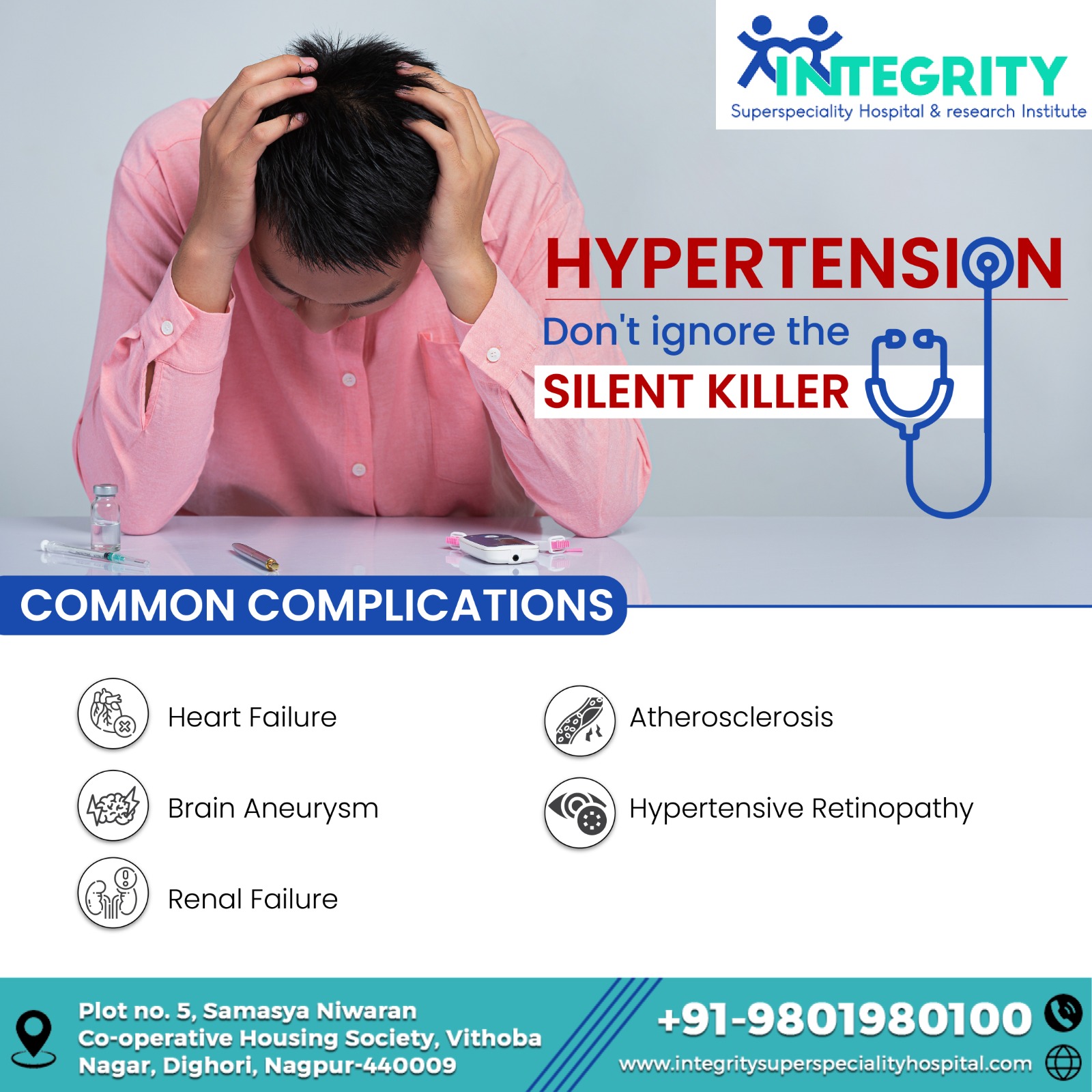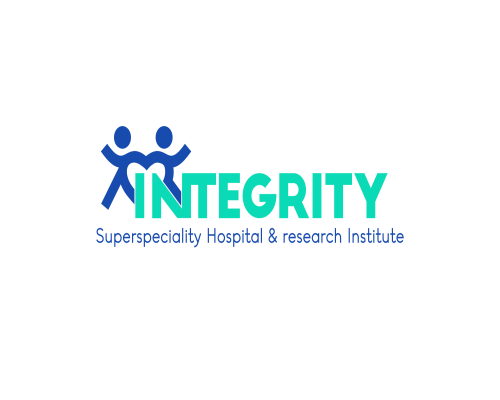
2024-06-02T07:08:40
Hypertension, commonly known as high blood pressure, is a chronic medical condition in which the blood pressure in the arteries is persistently elevated. This elevation requires the heart to work harder than normal to circulate blood through the blood vessels. Blood pressure is measured using two numbers: systolic pressure (the pressure in the arteries when the heart beats) over diastolic pressure (the pressure in the arteries when the heart is resting between beats). A normal blood pressure reading is usually around 120/80 mmHg. Causes and Risk Factors The exact cause of hypertension is often unknown, but several factors can contribute to its development, including: Genetics: A family history of hypertension increases the risk. Age: The risk increases as people age. Lifestyle: Poor diet (high in salt and fat), lack of physical activity, and obesity are significant contributors. Stress: Chronic stress can lead to temporary increases in blood pressure. Smoking and Alcohol: Both can raise blood pressure. Chronic Conditions: Conditions such as diabetes and kidney disease can increase the risk of hypertension. Types of Hypertension Primary (Essential) Hypertension: This type develops gradually over many years and has no identifiable cause. Secondary Hypertension: This type is caused by an underlying condition, such as kidney disease, adrenal gland tumors, or certain medications. It tends to appear suddenly and cause higher blood pressure than primary hypertension. Symptoms Hypertension is often called the "silent killer" because it typically has no symptoms until it has caused significant damage to the heart and arteries. When symptoms do occur, they may include: Headaches Shortness of breath Nosebleeds Flushing Dizziness Chest pain Visual changes These symptoms often only occur when blood pressure has reached a dangerously high level. Complications If left untreated, hypertension can lead to severe health problems, including: Heart Disease: Increased risk of heart attack and heart failure. Stroke: High blood pressure can cause blood vessels in the brain to burst or become blocked. Kidney Damage: Hypertension can damage the blood vessels in the kidneys, leading to kidney failure. Vision Loss: Damage to the blood vessels in the eyes can result in vision problems or blindness. Aneurysms: Increased pressure can cause blood vessels to weaken and bulge, leading to aneurysms. Metabolic Syndrome: This cluster of conditions increases the risk of diabetes, heart disease, and stroke. Diagnosis Hypertension is diagnosed through blood pressure measurements taken over multiple visits to a healthcare provider. A blood pressure reading consistently above 130/80 mmHg typically indicates hypertension. Other tests may include blood and urine tests, cholesterol tests, and electrocardiograms (EKG) to assess overall cardiovascular health. Treatment and Management Management of hypertension involves lifestyle changes and, when necessary, medication. Key strategies include: Lifestyle Changes: Diet: Following a heart-healthy diet, such as the DASH (Dietary Approaches to Stop Hypertension) diet, which emphasizes fruits, vegetables, whole grains, and low-fat dairy products. Exercise: Regular physical activity can help lower blood pressure and improve heart health. Weight Management: Maintaining a healthy weight can reduce the strain on the heart. Limit Alcohol and Quit Smoking: Reducing alcohol intake and quitting smoking can improve blood pressure levels. Stress Management: Techniques such as meditation, yoga, and deep breathing can help manage stress. Medications: When lifestyle changes are not enough, various medications can help control blood pressure. These include: Diuretics (to remove excess water and sodium) ACE inhibitors and ARBs (to relax blood vessels) Calcium channel blockers (to reduce heart workload) Beta-blockers (to reduce heart rate) Conclusion Hypertension is a common but serious condition that requires careful management to prevent complications. Regular monitoring, lifestyle changes, and adherence to prescribed treatments are crucial for maintaining healthy blood pressure levels and reducing the risk of related health issues. Early detection and proactive management can significantly improve outcomes for individuals with hypertension. people searches on people ask for #icu #criticalcarehospital #besticu #multispecialityandcriticalcarehospital #traumacentre #multispecialityhospital #bestcriticalcarehospitalindighori #bestcriticalcarehospitalinsakkardara #criticalcarehospitalonumredroad #besticu #intensivist #besticunearme #besttraumacentreinsakkardara #bestcriticalcarecentre #besthospitalindighori #traumahospitalindighori #besthospitalnearme #besthospitalonumredroad #besthospitalinsakkardara #besthospitalinnagpur #accidenthospital #traumahospital #multispecialityhospitalinsakkardara #diabetes #sugartreatment #diabetologist #diabeteshospital #diabetologistnearme #bestdiabetologistindighori

